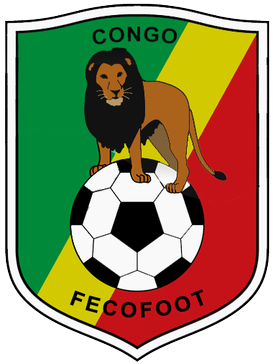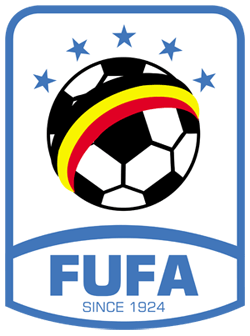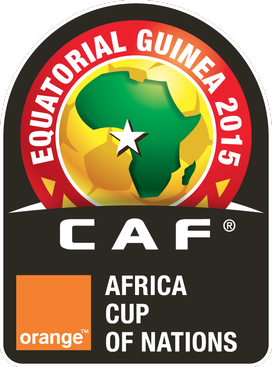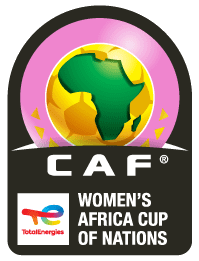
The Africa Cup of Nations, commonly abbreviated as AFCON and officially known as the TotalEnergies Africa Cup of Nations for sponsorship reasons, is the main quadrennial international men's association football competition in Africa. It is sanctioned by the Confederation of African Football (CAF) and was first held in 1957. Since 1968, it has been held every two years, switching to odd-numbered years in 2013.

The DR Congo national football team, recognised by FIFA as Congo DR, represents the Democratic Republic of the Congo in men's international football and it is controlled by the Congolese Association Football Federation. They are nicknamed Les Léopards, meaning The Leopards. The team is a member of FIFA and the Confederation of African Football (CAF).

The Ivory Coast national football team represents Ivory Coast in men's international football. Nicknamed the Elephants, the team is managed by the Ivorian Football Federation (FIF). The team has won the Africa Cup of Nations three times, in 1992, 2015 and 2024, and has qualified for the FIFA World Cup three times, in 2006, 2010, and 2014.

The Congo national football team represents the Republic of the Congo in men's association football and is governed by the Congolese Football Federation. They have never qualified for the World Cup, but did win the Africa Cup of Nations in 1972. They also won the All-Africa Games football tournament in 1965. The team is also a member of both FIFA and the Confederation of African Football (CAF).

The Guinea national football team represents Guinea in men's international football and it is controlled by the Guinean Football Federation. They have never qualified for the FIFA World Cup finals, and their best finish in the Africa Cup of Nations was runners-up in 1976. The team reached the quarter-finals in four recent tournaments. The team represents both FIFA and Confederation of African Football (CAF).

The Uganda national football team represents Uganda in association football and is controlled by the Federation of Uganda Football Associations.

The Cape Verde national football team represents Cape Verde in men's international football, and is controlled by the Cape Verdean Football Federation. The team has never qualified for the FIFA World Cup, but has qualified for four Africa Cup of Nations tournaments, in 2013, 2015, 2021 and 2023. The team achieved their best result in 2023 after making it past the first round of the knockout stage.
The Niger national football team represents Niger in international football through the Nigerien Football Federation, a member of Confederation of African Football (CAF). Niger plays in the colors of the flag of Niger, white, green and orange. Their nickname comes from the Dama gazelle, native to Niger, the Hausa name of which is Meyna or Ménas The Dama appears on their badge in the colors of the national flag.

Otto Martin Pfister is a German football manager and one of Germany's most successful coaching exports, voted Africa's Manager of the Year in 1992. He is formerly the manager of the Afghanistan national team.
Trésor Mputu Mabi is a Congolese former professional footballer who played as a midfielder.

The 2015 Africa Cup of Nations, known as the Orange Africa Cup of Nations, Equatorial Guinea 2015 for sponsorship reasons, was the 30th staging of the Africa Cup of Nations, the international men's football championship of Africa. It was organized by the Confederation of African Football (CAF) and was held from 17 January to 8 February 2015.

The 2017 Africa Cup of Nations, known as the Total2017 Africa Cup of Nations for sponsorship reasons, was the 31st edition of the Africa Cup of Nations, the biennial international men's football championship of Africa organized by the Confederation of African Football (CAF). The tournament was scheduled to be hosted by Libya, until CAF rescinded its hosting rights in August 2014 due to the Second Libyan civil war. The tournament was instead hosted by Gabon. This event was also part of the Africa Cup of Nations 60th Anniversary.

The African Nations Championship, known for sponsorship purposes as the TotalEnergies African Nations Championship and commonly abbreviated as CHAN, is a biennial African association football tournament organized by the Confederation of African Football (CAF) since 2009 and first announced in September 2007. The participating nations must consist of players playing in their national league competitions.
This is a list of records and statistics of the Africa Cup of Nations.

The 2019 Africa Cup of Nations, known as the Total2019 Africa Cup of Nations for sponsorship reasons, was the 32nd edition of the Africa Cup of Nations, the biennial international men's football championship of Africa organized by the Confederation of African Football (CAF). The tournament was hosted by Egypt. The competition was held from 21 June to 19 July 2019, as per the decision of the CAF Executive Committee on 20 July 2017 to move the Africa Cup of Nations from January/February to June/July for the first time. It was also the first Africa Cup of Nations expanded from 16 to 24 teams.
The knockout stage of the 2015 Africa Cup of Nations was the second and final stage of the competition, following the group stage. It began on 31 January with the round of 16 and ended on 8 February 2015 with the final held at the Estadio de Bata in Bata. A total of 8 teams advanced to the knockout stage to compete in a single-elimination style tournament.

The 2016 African Nations Championship, also known for short as the 2016 CHAN and for sponsorship purposes as the Orange African Nations Championship, was the 4th edition of the biennial African association football tournament organized by CAF featuring national teams consisting of players playing in their respective national leagues. It was held in Rwanda from 16 January to 7 February 2016.

The Women's Africa Cup of Nations (WAFCON), known for sponsorship purposes as the TotalEnergies Women's Africa Cup of Nations and formerly the African Women's Championship, is a biennial international women's football tournament organized by the Confederation of African Football (CAF) since 1998 as the qualification for the FIFA Women's World Cup for African nations. Initially started as a home-and-away qualification competition, it got rechristened as a biennial tournament in 1998 and took on its current name as of the 2016 edition.
Group C of the 2017 Africa Cup of Nations was played from 16 to 24 January 2017 in Gabon. The group consisted of defending champions Ivory Coast, Morocco, DR Congo, and Togo.
















